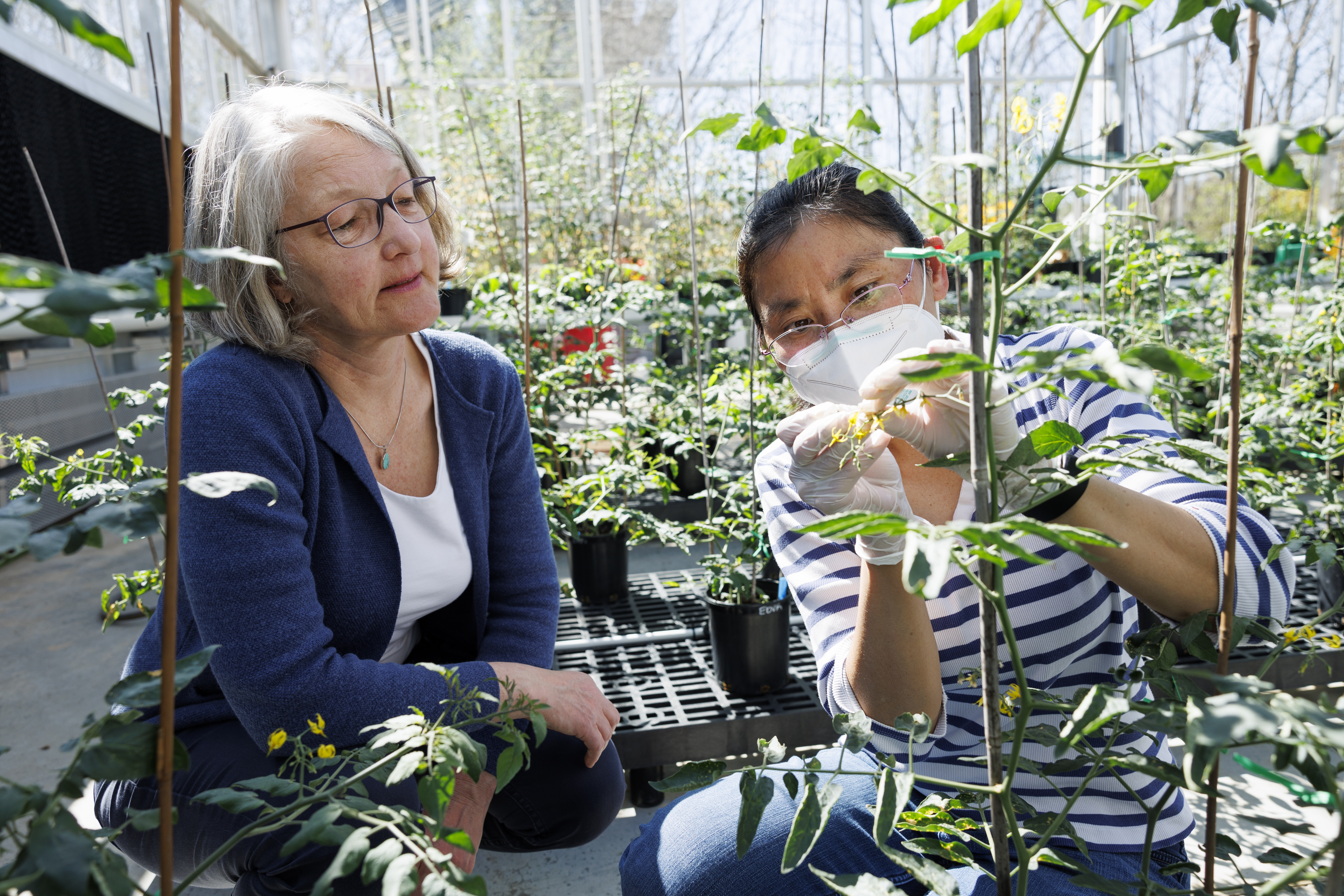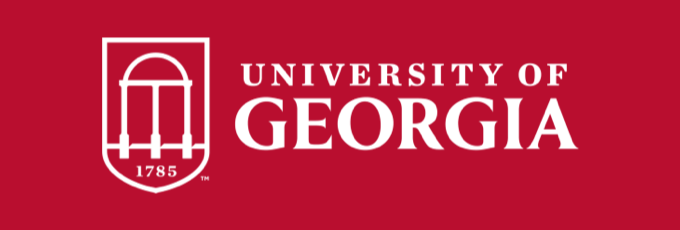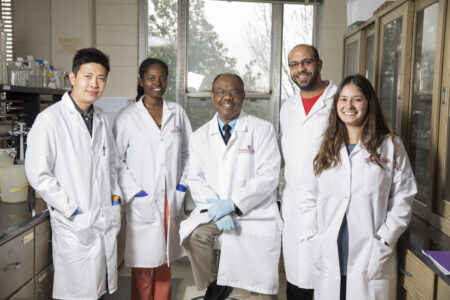Graduate students in agricultural and environmental sciences need the right environment, resources, and opportunities to thrive. They need mentorship from industry-leading experts, state-of-the-art facilities in which to conduct research, and they need a natural ecosystem conducive to their scientific exploration.
With three campuses in the southeastern US, the University of Georgia’s College of Agricultural and Environmental Sciences (CAES) provides exactly that. As Georgia’s oldest and largest industry, agriculture represents hundreds of thousands of jobs and nearly ten million acres of active farming operations across the state. With its humid subtropical climate, diverse soil types, and ample rainfall, Georgia provides an ideal environment for growing virtually any crop or animal making it a prime location for agricultural research and innovation.
CAES has campuses in Athens, Tifton, and Griffin, Georgia — each with access to top-tier faculty, cutting-edge research opportunities, and specialised facilities, allowing students to choose a learning environment that best fits their research interests and career goals.
Each campus specialises in key research areas that drive innovation and yield ground-breaking discoveries. For example, students on the university’s main campus in Athens, Georgia can focus their interests in developing stronger, more resilient crops through CAES’ Institute of Plant Breeding, Genetics, and Genomics (IPBGG).
The Griffin campus is a hub for food science and home to CAES’ Center for Food Safety and Food Product Innovation and Commercialization Center where award-winning researchers are breaking new ground in addressing the needs of the public by preventing, detecting, and controlling the transmission of food-borne pathogens.
Nestled in one of Georgia’s most fertile regions, the Tifton campus leads in horticulture and crop and soil sciences, housing a top-tier blueberry breeding programme. These spaces ensure students gain the skills and knowledge required to contribute to advancements.
For those looking to immediately make an impact by improving crops, ensuring food safety, or advancing sustainable farming, CAES provides the tools and support to do so. One such success story is Dr. Jouman Hassan who completed her PhD in Food Safety at the Griffin campus and now serves as a postdoctoral researcher at the Center for Food Safety.
“I have always aspired to a career in academia that seamlessly integrates scientific research, education, and communication to strengthen the safety of our food supply,” she says. “The Centre for Food Safety provided the ideal environment to pursue this vision. It offers a unique platform to engage in cutting-edge research, build collaborative networks, and gain a comprehensive perspective on critical food safety challenges at both local and global levels.”

The Center for Food Safety unites experts from academia, industry, and government to drive innovation in food safety and microbiology. Source: University of Georgia College of Agricultural and Environmental Sciences
The University of Georgia is consistently recognised for its commitment to academic excellence and affordability, ranking #13 as a Best Value Public College by Princeton Review. It’s easy to understand why as the university’s graduate degrees place students at the forefront of the most critical areas of agricultural and environmental science.
For those passionate about improving plant varieties whether for higher yields, disease resistance, enhanced nutrition, or aesthetic appeal, CAES graduate programmes at CAES’ Institute of Plant Breeding, Genetics, and Genomics in Athens are ideal.
“Through active engagement in cutting-edge projects, students contribute to the advancement of plant breeding and genetics and gain invaluable hands-on experience that transforms them into future leaders in the field,” says Institute Director Dr. Wayne Parrot.
Over at the Griffin campus, students gain hands-on experience and engage in cutting-edge research at the Center for Food Safety and Food Product Innovation and Commercialisation Center — FoodPIC for short — where researchers assist companies in developing new food products efficiently and economically. From consumer research and formulation to prototyping, shelf-life analysis, and marketing, graduate students are key drivers in advancing food safety and quality at both innovation centres.
Dr. Jim Gratzek, who earned his PhD in Food Process Engineering from UGA’s Department of Food Science and Technology in 1994, returned to UGA as FoodPIC director in July 2022, after nearly 30 years in the commercial food industry.
“An experience at FoodPIC in applied food science gives students a real-world look at what life in the industry is about,” Dr. Gratzek says. “Our students go to a level that is just not taught in the classroom. ”

The University of Georgia’s Tifton Blueberry Breeding Programme provides international students with research and networking opportunities to drive global impact. Source: University of Georgia College of Agricultural and Environmental Sciences
Students looking to gain expertise in horticulture and crop and soil sciences can do so at CAES’ Tifton Campus. One standout opportunity is the Blueberry Breeding Programme where students develop the skills needed to advance plant breeding through access to hands-on breeding projects. Just ask Sindoora Nalajala, a graduate research assistant working with Assistant Professor Dr. Ye “Juliet” Chu.
“The work done in the breeding programme shapes the future of agriculture in ensuring sustainability to face the environmental challenges,” Nalajala says.
Though all three campuses offer their own specialised programmes, CAES’ ground-breaking research teams come together at CAES’ Institute for Integrative Precision Agriculture, a key initiative of over seventy faculty members and eighty graduate students harnessing data and technology for sustainable food production.
“Here, students integrate traditional horticultural practices with cutting-edge research in precision irrigation, sensor-based crop monitoring, and data-driven farming techniques,” says Assistant Professor and Precision Ag Extension Specialist Dr. Luan Olivera.
At the Institute for Integrative Precision Agriculture, CAES graduate students play a crucial role in improving crop production, conserving resources, and developing environmentally and economically sustainable agricultural technologies.
“Their work goes far beyond the lab and translates into real-world solutions that make a difference for farmers, communities, and the environment,” says Professor and Director of the Institute for Integrative Precision Agriculture Dr. George Vellidis.
Interested? Learn more about University of Georgia’s College of Agricultural and Environmental Sciences.
Follow UGA College of Agricultural and Environmental Sciences on LinkedIn, Facebook, and Instagram.













